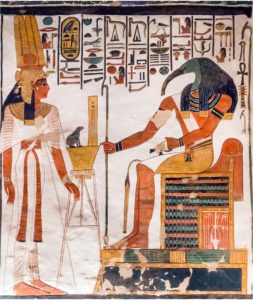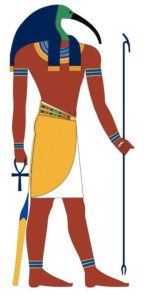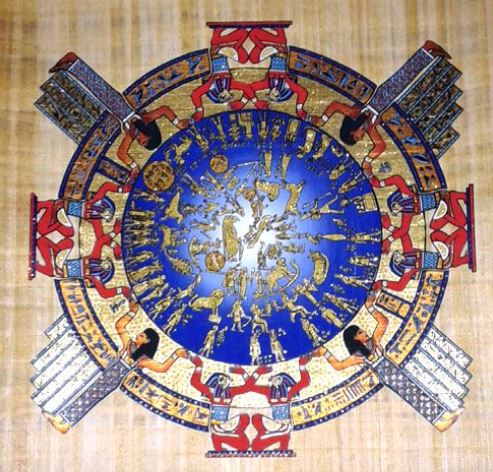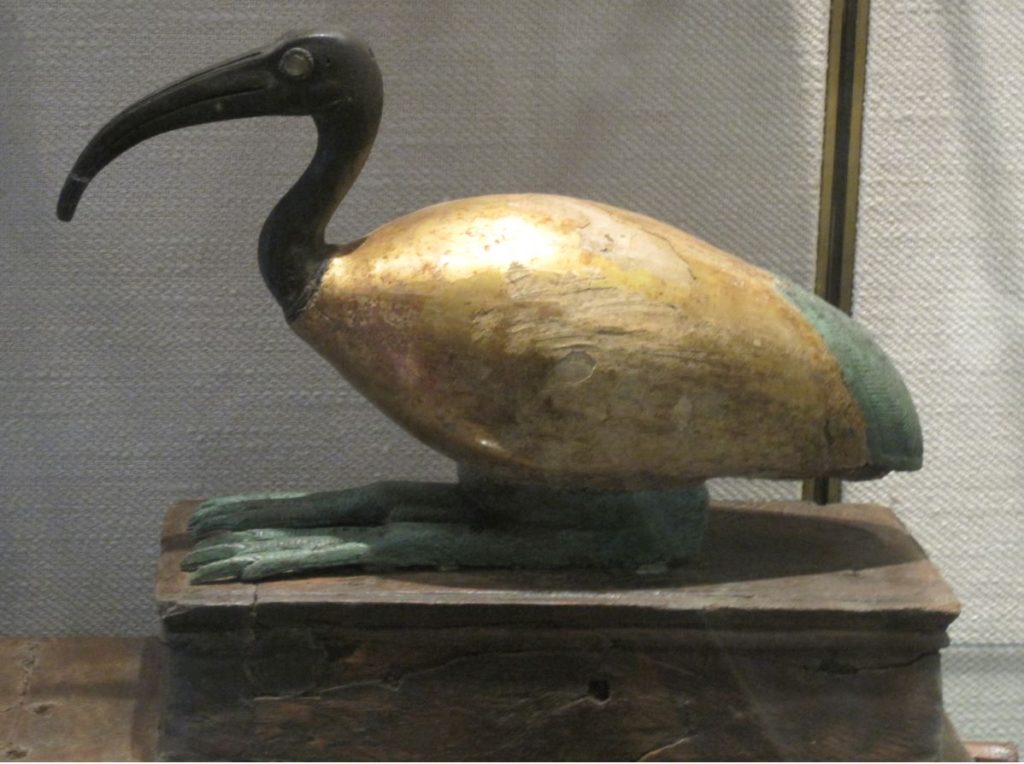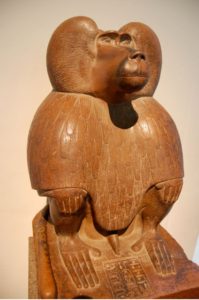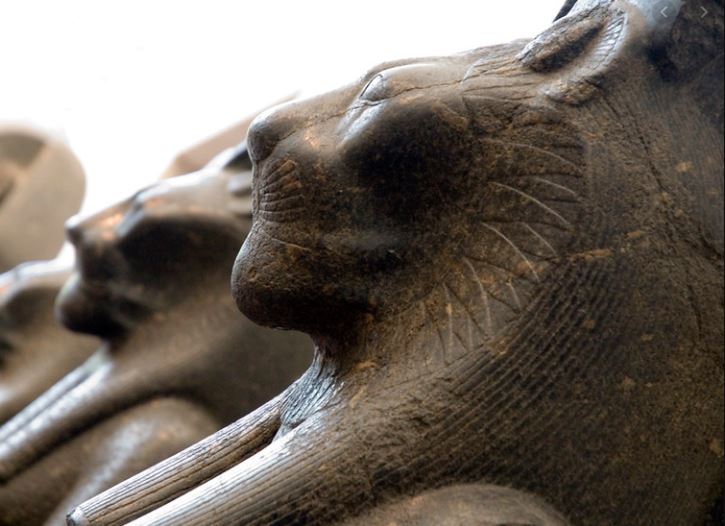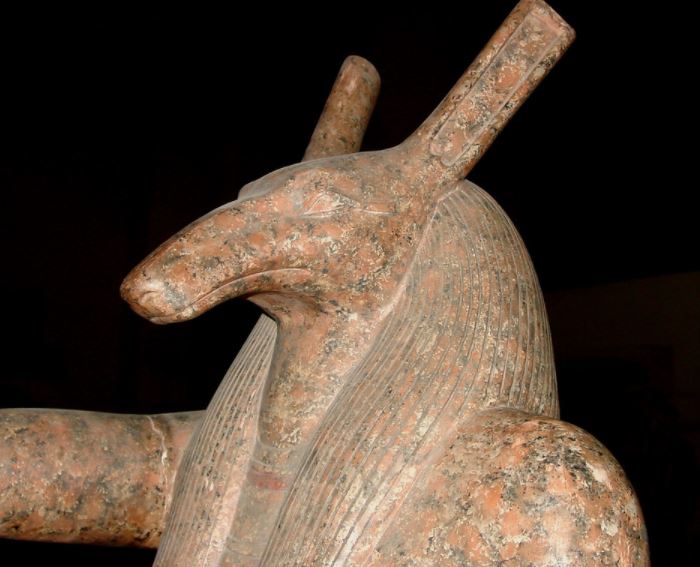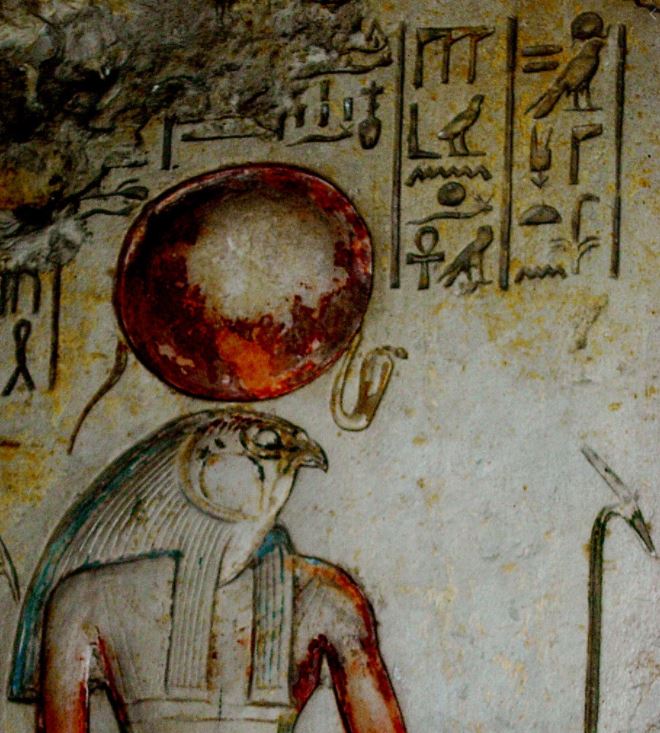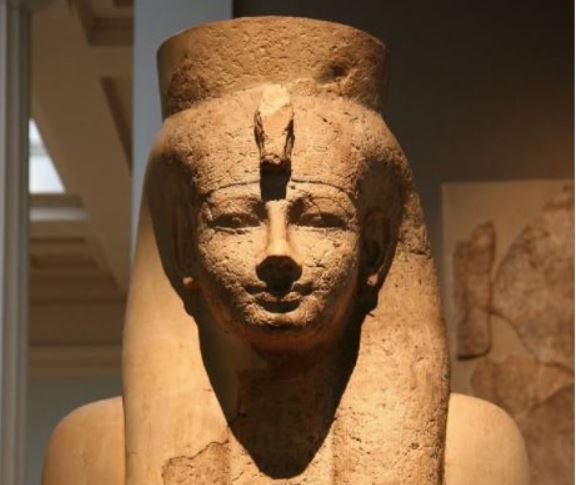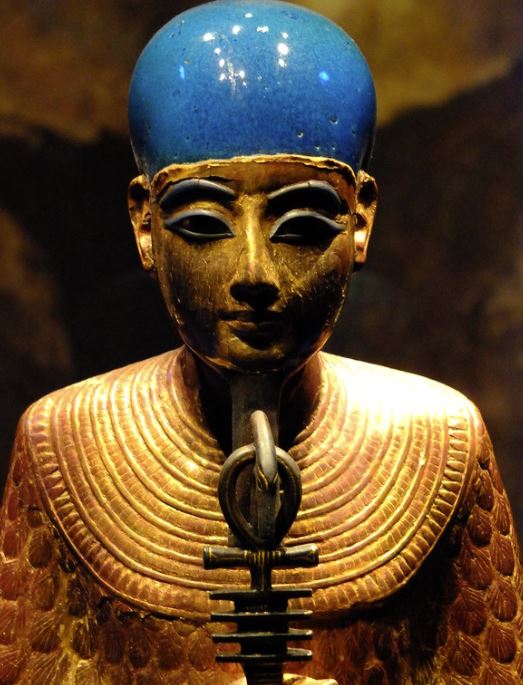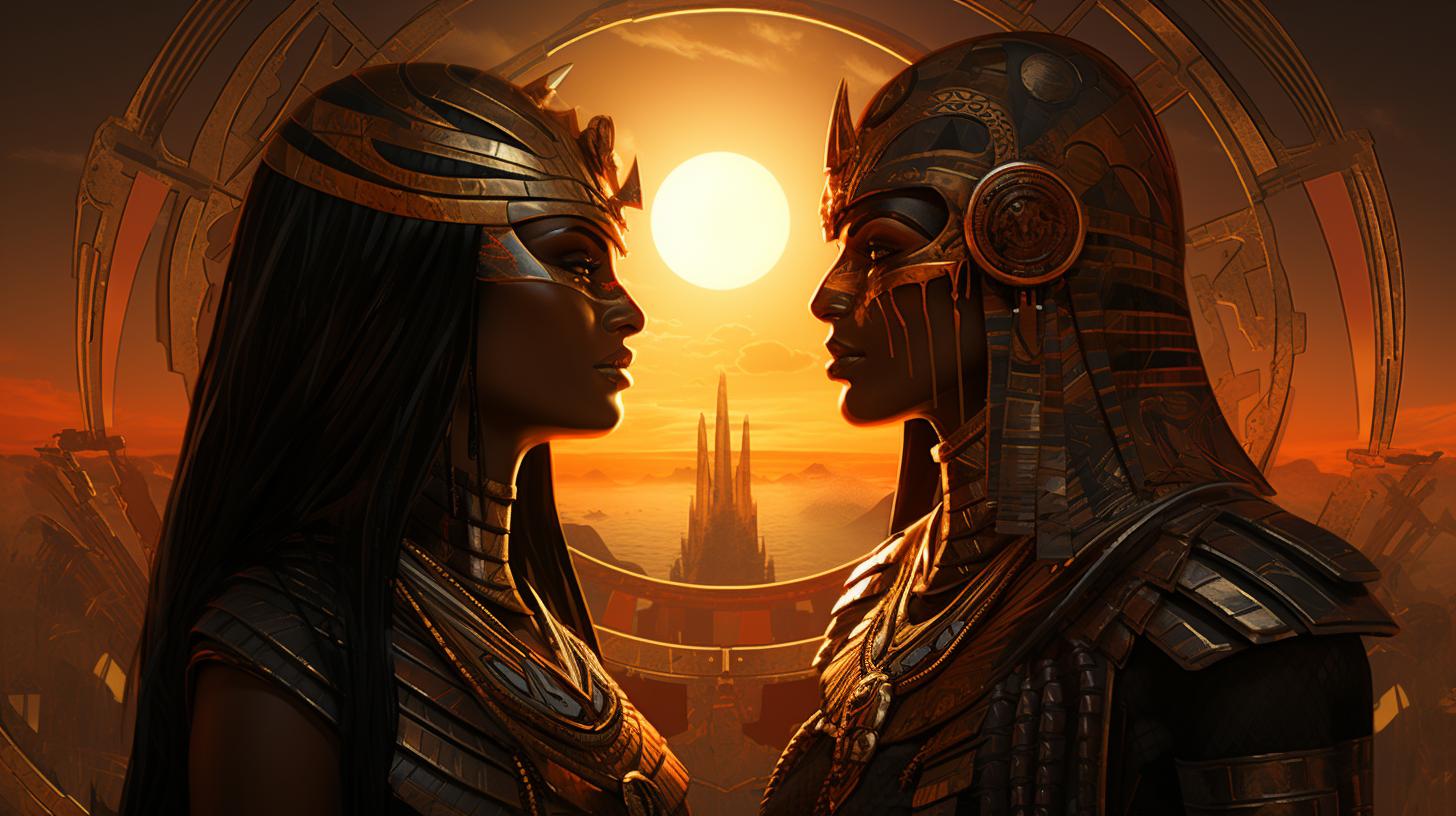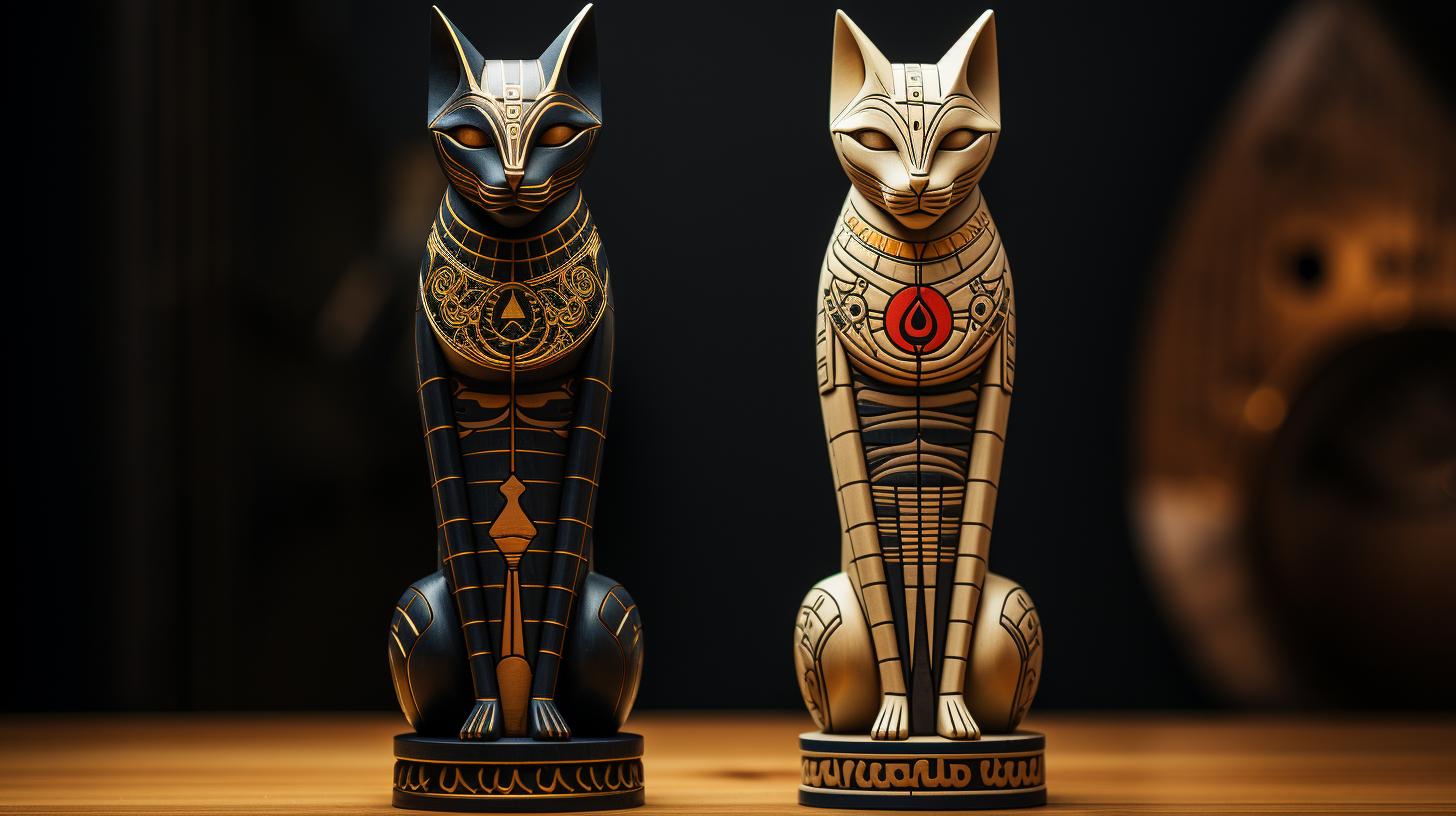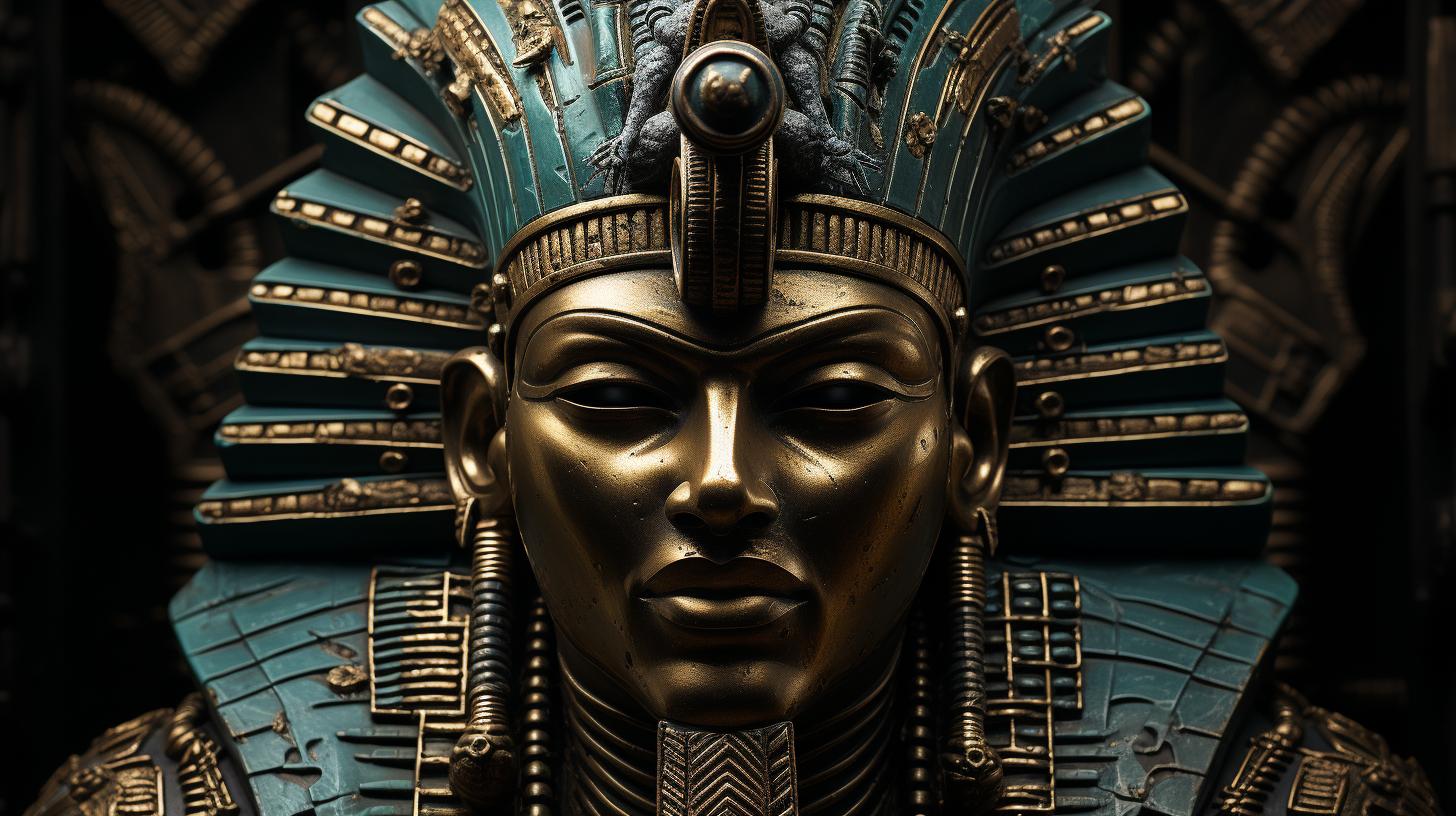Egyptian God Thoth, The Deity of Wisdom
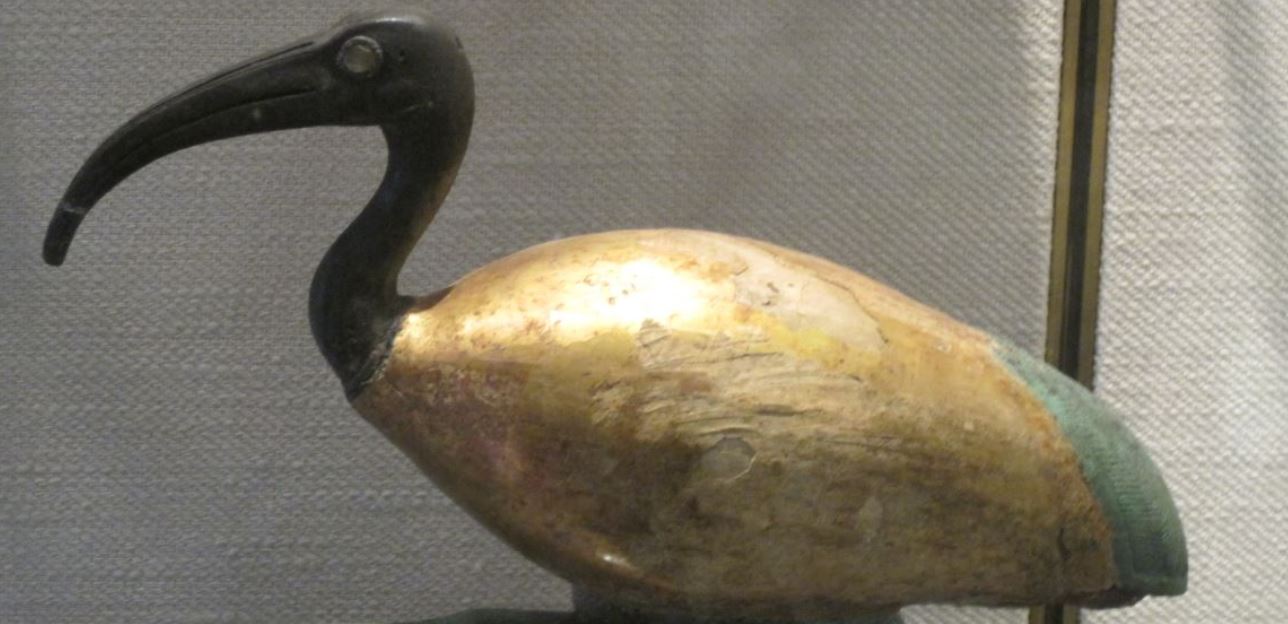
The Egyptian god Thoth was one of the most important and ancient deities of the Egyptian pantheon.
A proof of this statement is the fact that, according to many sources, he had not been generated by other gods, but had instead created himself in a manner similar to that of the primordial god Atum.
What is Thoth the god of?
Thoth was associated with anything indicating mental and intellectual ability: he was the god of writing, medicine, science, magic, and was the granter of the rightness of judgment in disputes.
Simplifying, we could say he was the god of wisdom. He was often represented with the head of an ibis or in the form of a baboon, animals which were sacred to him.
Pictures of Thoth Egyptian god sitting on a throne
As we have stated, many sources indicate that the Egyptian god Thoth created himself.
This act of self-creation would have happened by the use of language. According to the Egyptian belief that words actually possessed magic powers.
Thoth powers were such, that, at the climax of his popularity, it was suggested that he had even created Atum.
When the Egyptian god Thoth took the form of an ibis, he would have laid an egg, from which the deity Atum was born.
The Egyptian god Thoth: Origin of the Name
The Egyptian spelling of the name of Thoth was “dhwty”.
The interpretation considered more reliable splits this word into two parts, “dwh-” and “-ty”.
The first would be an earlier form of the word “hbj”, which meant “ibis”, while the second would mean “the one who is like”.
The Egyptian god Thoth’s name, therefore, would mean “the one who is like the ibis”.
A representation of the Egyptian god Thoth with the head of an ibis
History of Thoth and Most Important Myths Related to Him
The Egyptian god Thoth played crucial roles in many important myths, a fact which makes evident his importance in the ancient Egyptian religion.
Let’s see some of the most relevant.
The Game of Dice with the Moon and the Invention of the Calendar
This is probably the story that better shows how the figure of Thoth was seen by ancient Egyptians.
In this tale, in fact, intelligence and mathematical ability are employed by the Egyptian god Thoth in order to achieve natural and moral order.
This myth is probably important from the historical point of view, also, because it might symbolize the efforts made by ancient Egyptians to produce an accurate calendar.
It was told that the Egyptian year was once 360 days long.
Due to a curse pronounced by the god Ra against the sky goddess Nut, she was unable to give birth on any of these days, though she was pregnant of her brother Geb, the god of earth in Egypt.
Since the children of Nut had to be some of the most important deities (Osiris and Isis were among them), the curse kept the progression of the universe blocked.
The Egyptian god Thoth decided to apply his mental abilities to resolve the situation.
He set up a game of dice with the Moon (represented by the god Khonsu), which, at that time, was far more luminous than today.
He kept playing until he won from the Moon 1/72nd of his light. Since 360/72 = 5, the light won was equal to five new days, which gave the calendar its actual, accurate form.
Being free from Ra’s curse, this fact permitted Nut to give birth to her five sons, allowing the story of the universe to proceed.
The Egyptian calendar
The Persuasion of Tefnut
In this story, another aspect of the Egyptian god Thoth’s mental power is depicted, i.e. his ability with words.
It was told that Tefnut, the goddess of moisture, once left Egypt for Nubia. It was a catastrophic event because all the waters of Egypt had followed her.
For this reason, Ra sent the Egyptian gods Thoth and Shu to Nubia to bring her back. They managed to find her, but she refused to return. Thoth then began talking about how much Egypt missed her, and of all the honors and processions she would have received once returned.
Thoth’s persuasive words, at last, convinced her to come back, so to put an end to Egypt’s lack of water.
As the one dealing with the invention of the calendar, this myth, also, has an important historical meaning.
It is in fact thought by scholars that it could be an imaginative representation of a weather disaster that occurred at the end of the Old Kingdom.
Powers of the Egyptian god Thoth
Being the one who presided over magic, Thoth was seen as one of the most powerful gods.
In the Osiris myth, it was him who gave to Isis the magic words capable of realizing the greatest prodigy imaginable: to bring Osiris back to life from the world of the dead.
It was also told that he once saved the egyptian god of war and hunt Horus eliminating poison from his body when he was a child and that he helped him defeating his infamous brother Set.
Symbols of Thoth and Their Meanings
Let’s see in detail what are the main symbols associated with Thoth, and what are their meanings.
Thoth Egyptian god symbols: The Ibis
We have seen in the introduction that the ibis was an animal sacred to Thoth, who was in fact typically represented with the head of an ibis.
Probably, it was because the beak of the ibis remembered a crescent moon. Having invented the Egyptian calendar, which was based on the moon cycle, the god Thoth was in fact related to the moon.
The Egyptian god Thoth statue: a representation of the ibis
Thoth Egyptian god symbols: The Baboon
Beside the ibis, the baboon, also, was sacred to Thoth, which was sometimes depicted as a baboon holding a lunar globe in his hands.
The reason could be that baboons are nocturnal animals, and have the habit of emitting verses when the sun rises.
The Egyptian god Thoth statue: a representation of the baboon
Additional Facts about Thoth
In ancient Egyptian literature, magic played a very important role.
Being Thoth the god of both writing and magic, it is obvious that many important contributions to this subject were attributed to him.
Among them, of course, there were the magic spells contained in the famous Book of the Dead and in the Book of Breathings.
Very fascinating is also the story of the so-called Book of Thoth. It was a fictional book believed to be able to give gods’ knowledge to its readers.
Another legendary book linked to Thoth was the Emerald Tablet. Attributed to Hermes Trismegistus, who was a Hellenistic deity obtained by the fusion of Thoth with the Greek god Hermes, it was seen by alchemists as the text which actually founded their art.

